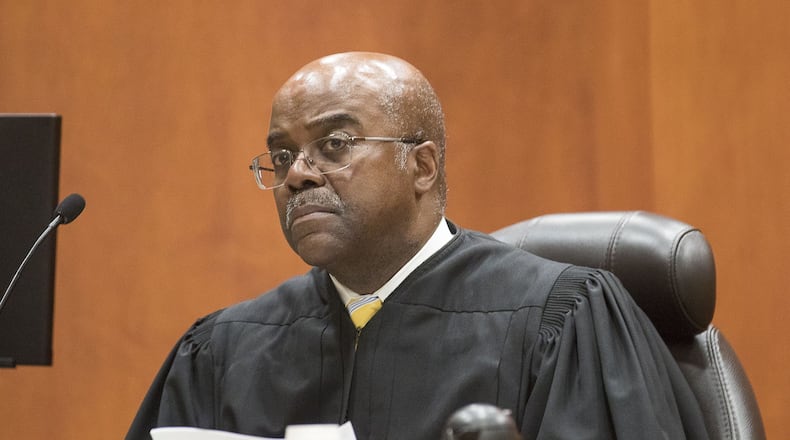A new judge will be assigned to handle the lawsuit challenging DeKalb County commissioners' controversial 2018 vote to give themselves a pay raise.
DeKalb Superior Court Judge Gregory A. Adams voluntarily recused himself from the case late last week, more than three months after the Georgia Supreme Court issued a ruling sending it back to the trial court.
Adams’ recusal follows a motion brought by local activist Ed Williams, who filed the original lawsuit against several DeKalb commissioners and county CEO Michael Thurmond. Williams had requested Adams remove himself due to his previous rulings in the case and what Williams called the judge’s “long congenial relationship with some of the commissioners.”
Williams also raised questions about Adams’ appointment as chair of DeKalb’s charter review commission, a body tasked with evaluating the organization of the county’s government and how powers are delegated. Williams argued that the matters under examination by the review commission could include the very issue he raised in his lawsuit.
In his June 26 recusal latter, Adams did not specify a reason for removing himself from the case.
As of Wednesday, a new judge had not been assigned.
Williams filed his lawsuit without the aid of an attorney in August 2018, several months after DeKalb commissioners voted to give themselves a nearly 60% raise. The pay hike was quickly introduced during a meeting without being listed on the agenda and without going through the commission's normal committee review process.
Williams’ suit argues that the commission’s vote violated open meeting laws and the salary ordinance was unconstitutional.
Adams dismissed the suit originally but Williams appealed all the way to the state's Supreme Court, where law students at the University of Georgia's appellate litigation clinic helped argue the case late last year.
The Supreme Court issued its opinion in March.
While the high court did not rule on the merit of any allegations themselves, it found that Williams should have been permitted to pursue civil penalties against individual commissioners for allegedly violating the state’s Open Meetings Act. It also found that Williams’ request for an injunction to stop CEO Thurmond from paying the increased salaries was dismissed prematurely.
About the Author
Keep Reading
The Latest
Featured



